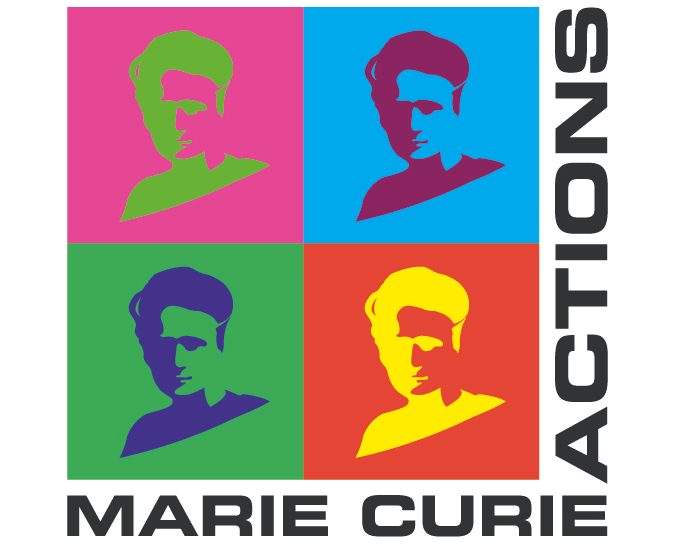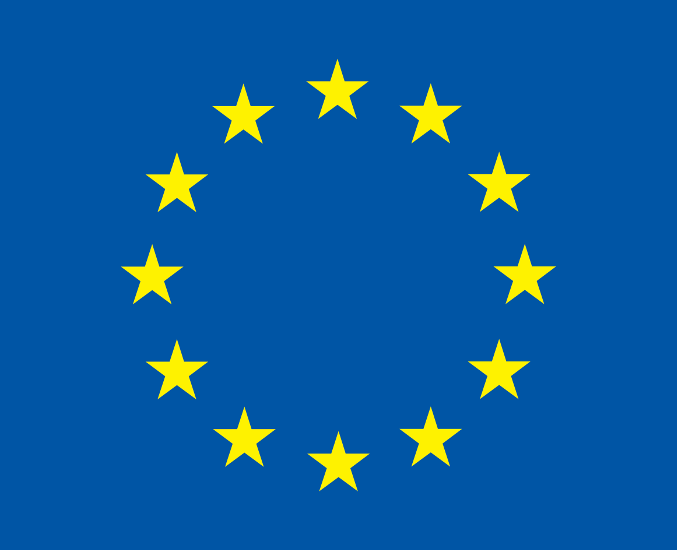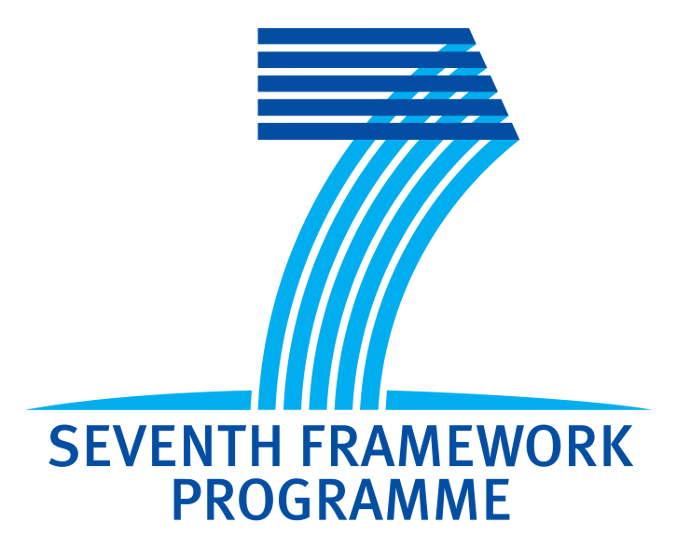ESR 1 | Digital scholarly editing and mass digitisation (NUIM) | Richard Hadden
ESR 2 | Document-centric editions (KCL) | Tuomo Toljamo
ESR 3 | Digital architecture and the role of the editor: Mapping invention in writing (UA) | Elli Bleeker
ESR 4 | Palaeography and digital scholarly editions (GU) | Frederike Neuber
ESR 5 | Practice and usability of critical editions (EHESS) | Francisco Javier Álvarez Carbajal
ESR 6 | TEI and web-based editing tools (KNAW) | Elena Spadini
ESR 7 | Mass digitization data for scholarly research and digital editions (UoC) | Misha Broughton
ESR 8 | Critical transmission aspects / Digital scholarly editing and memory institution (HB) | Merisa Martinez
ESR 9 | Social editing (KCL) | Daniel Powell
ESR 10 | Long-term business models in dissemination and publishing (KNAW) | Anna-Maria Sichani
ESR 11 | Dissemination of digital editions (UA) | Aodhán Kelly
ESR 12 | Critical editing as a cultural process (UdR) | Federico Caria
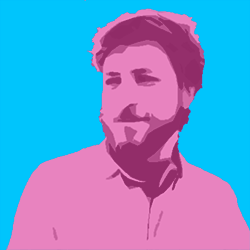 ESR 1: Digital scholarly editing and mass digitisation
ESR 1: Digital scholarly editing and mass digitisation
Richard Hadden | Maynooth | Introduction Post
Supervisor: Prof. Susan Schreibman
Host: National University of Ireland, Maynooth
Duration: 36 months
Objectives:
- Investigation into differing methodologies for scholarly editing and data mining from mass digitsation datasets
- Enrichment of mass digitisation data so that it can be reconciled with the goals of scholarly editions
- Testing results of the enrichment process against contemporary theories of scholarly editing with a view to the development of new methods that reconcile these two methodologies and theoretical perspectives
Tasks and methodology:
- Exploration of enrichment techniques such as automated mark-up, semantic web technologies and concept mapping (in collaboration with Editura, Net7):
- Explore methodologies common to digital scholarly editing practice and mass digitisation
- Investigate ways to reconcile the differing methodologies
Planned secondments:
- University of Cologne, 6 months: Study data enrichment strategies and algorithms
- Editura, 2 months: Gain insight into the practice, standards and workflows of digitization by a service provider
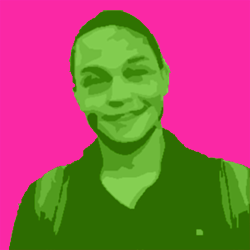 ESR 2: Document-centric editions
ESR 2: Document-centric editions
Tuomo Toljamo | London | Introduction Post
Supervisor: Dr. Elena Pierazzo / Dr. Peter Stokes
Host: King’s College London
Duration: 36 months
Objectives:
- Investigation of the impact of the availability of high quality digital facsimiles to editors and users
- Study the role of layout in textual interpretation and transmission
- Modelling of codicological structure of the book
- Testing the limits of text encoding for documentary editing
- Analysis of the role of the editor in documentary editing
- Modelling documents
Tasks and methodology:
- Facsimile, diplomatic, ultra-diplomatic edition in digital format: feasibility and usability evaluation
- Analysis of the technology, the centrality of document and the de-centralization of editors
- Preparation of a prototype documentary edition
- Application of markup to a sample material
Planned secondments:
- KNAW, 6-8 months: Importance of diplomatic editing for linguistic studies and studies into literary context
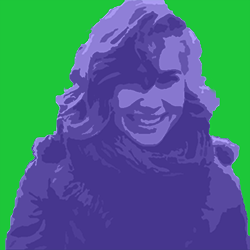 ESR 3: Digital architecture and the role of the editor: Mapping invention in writing
ESR 3: Digital architecture and the role of the editor: Mapping invention in writing
Elli Bleeker | Antwerp | Introduction Post
Supervisor: Prof. Dr. Dirk van Hulle
Host: University of Antwerp
Duration: 36 months
Objectives:
- Develop a digital architecture to map the dynamic interaction between exo- and endogenesis of literature works
- Examine the changing role of the editor in digital scholarly editing
Tasks and methodology:
- Explore how a digital archive containing modern manuscripts can be designed in such a way that it can integrate many kinds of relevant material (including, for instance, an author’s complete personal library)
- Develop a concrete digital infrastructure to facilitate innovative research into, and examination of, the writing process
- Investigate the role of the editor who is enabled to focus on the interpretive consequences of variants and versions
Planned secondments:
- KNAW, 3 months: Study (semi-)automated collation approaches
- R1, 3 months: Training in handling automated collation and versioning
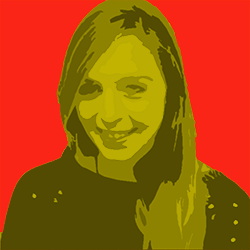 ESR 4: Palaeography and digital scholarly editions
ESR 4: Palaeography and digital scholarly editions
Frederike Neuber | Graz | Introduction Post
Supervisor: Dr. Georg Vogeler
Host: Graz University
Duration: 36 months
Objectives:
- Model for transcription methodologies that allow for enhanced studies in palaeography and codicology
- Proof of concept by doing a palaeographical study with digital editions selected from the studies samples
Tasks and methodology:
- Describe state of the art in Digital Palaeography methodologies
- Evaluation of text-image linked digital editions and their potential for analysis in palaeographical and codicological research
- Evaluation of allographic transcription methods and their practicability in digital editing
- Evaluation of tools supporting text-image-linkage and allographic transcriptions
Planned secondments:
- KCL, 8-12 months: Work with the DigiPal team, learn methodology and apply to own research; potentially adapt existing digital framework for text/image and palaeographical studies
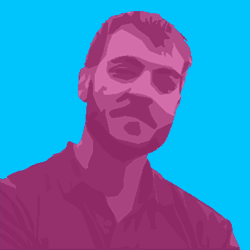 ESR 5: Practice and usability of critical editions
ESR 5: Practice and usability of critical editions
Francisco Javier Álvarez Carbajal | Lyon | Introduction Post
Supervisor: Dr. Marjorie Burghart
Host: École des Haute Études en Sciences Sociales
Duration: 36 months
Objectives:
- An empirical study on input tools and work environments for digital editions
- Proof-of-concept or case study edition(s)
Tasks and methodology:
- Evaluation and enhancement of digital scholarly editions through a case study on encoding, visualisation and publication strategies (in collaboration with SyncRO)
- Survey of usages of digital editions, and the relation between digital libraries and the works done on their holdings
- One or more case studies to allow the young scholar to develop editorial skills herself/himself
Planned secondments:
- TCD/NLI, 6 months: Investigate the synergies and collaborative opportunities between scholarly editors and digital library programmes
- UoW, 3 months: Learn from case studies at the University of Würzburg
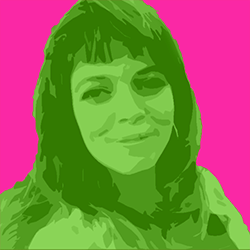 ESR 6: TEI and web-based editing tools
ESR 6: TEI and web-based editing tools
Elena Spadini | The Hague | Introduction Post
Supervisor: Dr. Peter Boot
Host: Koninklijke Nederlandse Akademie van Wetenschappen / Huygens ING
Duration: 36 months
Objectives:
- Given on the one hand the availability of a mature and highly sophisticated infrastructure for digital editing spearheaded by the TEI consortium, and on the other hand the blossoming of web-based transcription and crowd sourcing tools, to describe the respective strengths of both approaches
- To effect an Integration of web-based tools and the TEI ecosystem to enable collaborative, accessible and standards-based editing
- To facilitate within either approach the accessible and standards-based semantic annotation of digital content
Tasks and methodology:
- Develop an inventory and critical assessment of web-based tools and comparison of web-based editing vs. XML-native solutions
- Devote special attention to the issue of capturing textual variation in either paradigm
- Define a suitable TEI-compatible standoff mark-up format for exchange between TEI and web-based environments.
- Semantic enrichment of XML digital contents (in collaboration with Net7)
Planned secondments:
- R1, 6 months: Research on tagless editing and data models designed to capture textual variation
- Net7, 3 months: Insight into the development of generic publication frameworks and semantic annotation tools
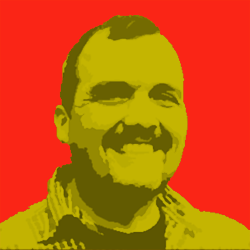 ESR 7: Mass digitization data for scholarly research and digital editions
ESR 7: Mass digitization data for scholarly research and digital editions
Misha Broughton | Cologne | Introduction Post
Supervisor: Dr. Patrick Sahle
Host: University of Cologne
Duration: 36 months
Objectives:
- Relationship between Museums / Libraries / Archives and academic scholars as regards availability and quality of digitally provided content
- Methods for measurement of quality of digital images and text
- Strategies for the improvement of digital images and text
- Implementation scenarios for the integration of mass digitization content into critical editions
Tasks and methodology:
- Evaluation of mass digitization data
- Assessment & evaluation of methods, algorithms and tools for data enhancement towards critical research
Planned secondments:
- UOX, 6 months: Learn advanced modelling and processing scenarios for TEI data
- HB, 2 months: Investigate methodological aspects of critical digitization
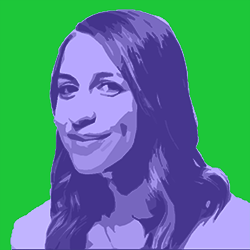 ESR 8: Critical transmission aspects / Digital scholarly editing and memory institution
ESR 8: Critical transmission aspects / Digital scholarly editing and memory institution
Merisa Martinez | Borås | Introduction Post
Supervisor: Dr. Mats Dahlström
Host: University of Borås
Duration: 36 months
Objectives:
- Digitization projects within memory institutions are quickly becoming more advanced, with several text and image capture phases being informed by textual/image/material criticism, and involving scholarly subject experts. To what extent are these expertise skills in digitization projects and their collections relevant to, performed by, and/or actually implemented by digital scholarly editing projects? This project will:
- identify the relation between various phases in the digitization process and particular scholarly editing skills, primarily textual criticism
- track and map memory institution digitization projects where several important phases in the process have been based on textual scholarship, largely performed by textual scholars
- track and map projects and cases where cooperation and interdependence between digitization experts and scholarly editors have been pronounced
- model implementation scenarios for the integration of knowledge, experiences and results from various digitization projects into digital scholarly editions
Tasks and methodology:
- Case studies of cultural heritage collection digitization projects that are, to varying degrees, based on research in textual criticism and philology. KB in Sweden may provide relevant testbeds
- Comparative analysis of digitization vs scholarly editing as two kinds of critical transmission activities
- Analyses of digitization projects on varying levels of quality and scale to identify crucial factors affecting the value and potential of the digital material to be re-used in new projects, in a range from new digitization projects to scholarly editions (in collaboration with Editura)
- Measurement of perceived added value among digitizers, editors and other stakeholders
Planned secondments:
- R1, 6 months: Comparative, evaluative study of a) cultural heritage digitization projects that are significantly based on skills in textual criticism and philology, and b) digital editing projects where materials and/or knowledge from digitization projects are significantly implemented
- Editura, 2 months: Gain insight into the practice, standards and workflows of digitization by a service provider, with an emphasis on identifying phases where textual/image criticism skills are required
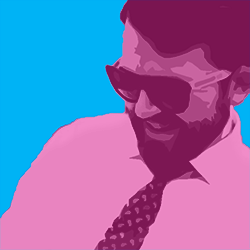 ESR 9: Social editing
ESR 9: Social editing
Daniel Powell | London | Introduction Post
Supervisor: Dr. Elena Pierazzo / Dr. Peter Stokes
Host: King’s College London
Duration: 36 months
Objectives:
- Following on recent experiments in this area of social networking sites which encourage wide participation from the public, a comprehensive analysis of current trends is envisaged that will produce guidelines and set standards for future endeavours of this type
- Analysis of the applicability of crowd-sourcing methods to different types of primary sources and discussion of the appropriateness of such methodology for each type of document
- Analysis of the role of quality control in editing and its application to distributed projects
- Authority, authoritarianism and authoritativeness in tradition editorial project and the consequences of application of distributed editing
Tasks and methodology:
- Assessing current projects that aim on crowd-sourcing
- Developing models for strategies of scholars and public involvement
- Moderation, quality assurance
- Vocabulary control
- Taxonomies and folksonomies
Planned secondments:
- KNAW, 4 months: Study several use cases of crowd-sourcing: theory, approaches, results
- GU/UoC, 4 months: Study the experiences in the collaborative charter archive monasterium.net
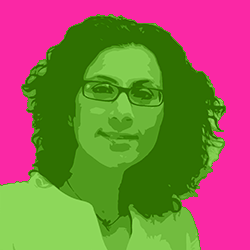 ESR 10: Long-term business models in dissemination and publishing
ESR 10: Long-term business models in dissemination and publishing
Anna-Maria Sichani | The Hague | Introduction Post
Supervisor: Prof. Dr. Karina van Dalen-Oskam
Host: Koninklijke Nederlandse Akademie van Wetenschappen / Huygens ING
Duration: 26 months
Objectives:
- The researcher will investigate the crucial questions of financial sustainability for exploitation and maintenance on the one hand, and the general interest of the scholarly community in open access on the other
Tasks and methodology:
- Methods: Literature research case studies, surveys, experiments, user studies.
- Aspects to be explored: viable policies for longer term valorisation and revenue; open access, exploitation and maintenance costs of digital editions; paper derivatives, event association, apps, ‘gamification’, e-learning, augmented reality knowledge aids, lite vs. full licensing, subscription etc. (in collaboration with AUP, OBP, Liguori)
- Semantic enrichment of XML digital contents (in collaboration with Net7)
Planned secondments:
- Liguori, up to 4 months: Study the experiences of business models for digital resources developed
- OBP/KCL, up to 4 months: Revenues and costing and sustainability of digital endeavours
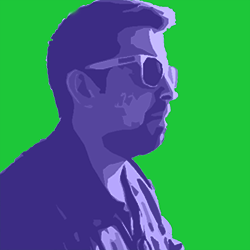 ESR 11: Dissemination of digital editions
ESR 11: Dissemination of digital editions
Aodhán Kelly | Antwerp | Introduction Post
Supervisor: Prof. Dr. Dirk van Hulle
Host: University of Antwerp
Duration: 36 months
Objectives:
- Develop an editorial model that facilitates the production of customized forms of editions for research, analysis, and dissemination
- Enhance and combine open source technologies to create a digital editorial environment that comprises not only the text as object, but also the process of the texts’ production, their source materials (digital facsimiles, transcriptions), and the totality of their functionalities/algorithms
Tasks and methodology:
- Analysis of existing methods of disseminating digital editions
- User study to analyze users’/readers’ needs and expectations for different types of digital publications
- Design a flexible editorial model for the dissemination of scholarly editions in a wide range of spin-offs: readers’ editions (codex, iPad, ebook), editions for the classroom, editions as apps for tables, etc. (In conjunction with associated partners in the publishing industry: AUP, OBP, Liguori)
Planned secondments:
- KCL, 4 months: Work in the productions of apps for iPad and Androids
- OBP, 4 months: Study and collaborate to focus groups and surveys
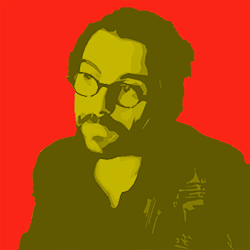 ESR 12: Critical editing as a cultural process
ESR 12: Critical editing as a cultural process
Federico Caria | Rome | Introduction Post
Supervisor: N. N.
Host: Università di Roma ‘La Sapienza’
Duration: 36 months
Objectives:
- To point out and analyse the concept and practices of critical editing from the points of view of cultural studies and the sociology of cultural artefacts
- To study methodologies for representing and accessing textual artefacts that exist in the form of discontinuous, unstable and stratified objects
- To introduce a social and ethnographic perspective into digital representation
Tasks and methodology:
- Analysis of documents in their social and cultural contexts
- Exploration of multicultural issues involved in encoding and editing texts and documents from different material, linguistic and cultural sources; digital editions beyond the TEI-XML model (in collaboration with Promoter)
- Exploration of the social edition model based on the concept of commons
Planned secondments:
- UoC, 6-8 months (between M20/M32): Learn about alternative models of electronic text beyond the current markup paradigm
